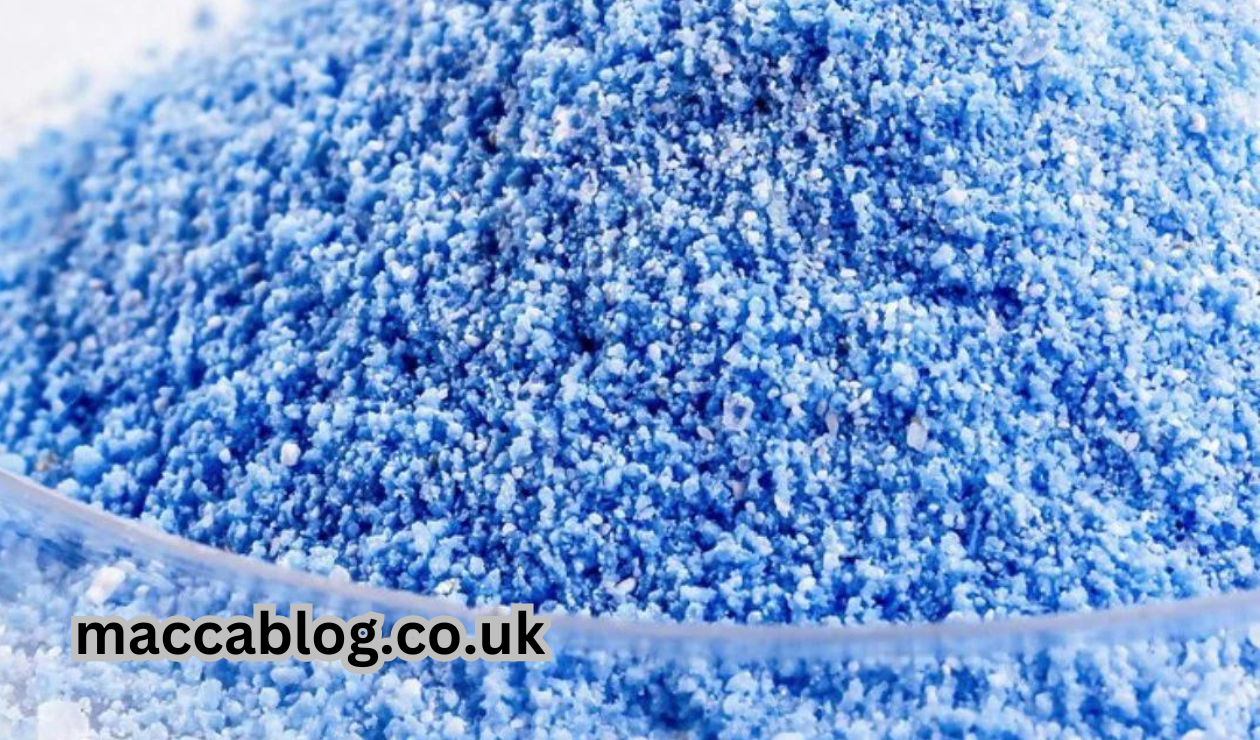Introduction to Ellman’s Condensation and its Importance in Organic Chemistry
Ellman’s condensation is a frequently discussed topic in organic chemistry due to its versatility and utility in synthetic processes. This reaction involves the formation of carbon-carbon bonds, which are foundational to creating complex organic molecules. The importance of Ellman’s condensation cannot be overstated; it’s a key reaction used in the synthesis of a wide variety of chemical compounds, including pharmaceuticals, agrochemicals, and polymers. Understanding and optimizing this reaction can significantly impact the efficiency and yield of these important products.
Understanding Copper Sulfate Pentahydrate: Properties and Common Uses
Copper sulfate pentahydrate (CuSO₄·5H₂O) is a blue crystalline substance commonly used in various industrial and chemical applications. It is well-known for its role as a fungicide, herbicide, and pesticide in agriculture. In the realm of chemistry, copper sulfate pentahydrate is used as a reagent in analytical chemistry and as a catalyst in organic reactions. Its solubility in water and ability to dissociate into copper (II) ions make it a versatile compound for numerous reactions.
Use of Copper Sulfate Pentahydrate in Ellman’s Condensation Reaction: Mechanism and Applications
Many chemists wonder, “Can you use copper sulfate pentahydrate for Ellman’s condensation?” The answer is yes. Copper sulfate pentahydrate can act as a catalyst in Ellman’s condensation, facilitating the formation of carbon-carbon bonds. The mechanism typically involves the activation of the carbonyl compound by copper ions, which enhances its reactivity towards nucleophilic attack. This makes the overall reaction more efficient and can potentially increase the yield of the desired product.
Advantages and Limitations of Using Copper Sulfate Pentahydrate in Ellman’s Condensation
Using copper sulfate pentahydrate in Ellman’s condensation offers several advantages. Firstly, it is readily available and relatively inexpensive, making it a cost-effective option for catalysis. Additionally, its high solubility in water allows for easy removal from the reaction mixture. However, there are limitations to its use. Copper sulfate pentahydrate can sometimes lead to side reactions, which may complicate the purification of the final product. Furthermore, the presence of water can sometimes interfere with sensitive reactants or conditions required for Ellman’s condensation.

Practical Tips and Considerations for Effective Implementation
When using copper sulfate pentahydrate for Ellman’s condensation, there are several practical tips to consider for optimal results. Firstly, ensure that the copper sulfate pentahydrate is fully dissolved in the reaction solvent to maximize its catalytic activity. Secondly, maintain appropriate reaction conditions, including temperature and pH, to prevent unwanted side reactions. Lastly, perform thorough purification steps post-reaction to remove any residual copper ions, which could interfere with subsequent reactions or analyses.
Case Studies or Examples of Successful Ellman’s Condensation Reactions Using Copper Sulfate Pentahydrate
There have been numerous successful applications of copper sulfate pentahydrate in Ellman’s condensation. For example, in the synthesis of certain pharmaceutical intermediates, copper sulfate pentahydrate has been used to improve the yield and selectivity of the desired product. Researchers have reported that using copper sulfate pentahydrate not only accelerated the reaction but also simplified the purification process, resulting in a more efficient overall synthesis.
Future Prospects of Using Copper Sulfate Pentahydrate in Organic Synthesis
Looking ahead, the use of copper sulfate pentahydrate in organic synthesis, including Ellman’s condensation, holds promising potential. Innovations in reaction conditions and catalyst design could further enhance its effectiveness and broaden its applicability. Additionally, the development of more environmentally friendly and sustainable methodologies could integrate copper sulfate pentahydrate into greener synthetic processes, aligning with the growing emphasis on green chemistry.
Case Studies and Examples
Examining real-world examples can provide practical insights into whether can you use Copper Sulfate Pentahydrate for Ellmans Condensation. Case studies from various industries can illustrate the compound’s potential applications.
For instance, a study in the pharmaceutical industry might show how the compound enhances drug synthesis, leading to more effective medications. Similarly, a case study in agriculture could highlight its role in developing new pesticides.
These examples can provide valuable lessons and inspire further research and innovation in using Copper Sulfate Pentahydrate for Ellmans Condensation.
Challenges and Considerations
While exploring if can you use Copper Sulfate Pentahydrate for Ellmans Condensation, it’s essential to consider potential challenges. These might include reaction conditions, compatibility with other substances, and safety concerns.
Understanding these challenges helps in designing experiments and processes that mitigate risks and enhance success. It also provides a comprehensive view of the compound’s potential applications and limitations.
By addressing these considerations, we can develop more robust and effective methods for using Copper Sulfate Pentahydrate in Ellmans Condensation and other chemical reactions.
Future Research Directions

The question of whether can you use Copper Sulfate Pentahydrate for Ellmans Condensation opens the door to further research and innovation. Scientists and engineers can explore new ways to enhance this reaction and discover additional applications.
Future research might focus on optimizing reaction conditions, testing different concentrations, and exploring other potential catalysts. This can lead to new insights and breakthroughs in organic synthesis.
Continued exploration and experimentation will help us fully understand the potential of Copper Sulfate Pentahydrate in Ellmans Condensation and other chemical processes.
Practical Tips for Chemical Engineers
Chemical engineers looking to explore if can you use Copper Sulfate Pentahydrate for Ellmans Condensation can benefit from practical tips and guidelines. These can help in designing experiments and processes that maximize success.
For instance, carefully controlling reaction conditions and testing different variables can provide valuable data. Additionally, collaborating with experts in related fields can offer new perspectives and insights.
By following these practical tips, chemical engineers can effectively explore the potential of Copper Sulfate Pentahydrate in Ellmans Condensation and contribute to advancing chemical science and engineering.
Conclusion
In summary, the use of copper sulfate pentahydrate in Ellman’s condensation presents a valuable tool for organic chemists seeking to streamline their synthetic processes. Its properties as an effective and affordable catalyst, coupled with practical considerations for its implementation, make it a compelling choice for various applications. By leveraging the insights provided here, chemists can optimize their use of copper sulfate pentahydrate and explore its full potential in future research and industrial applications.
